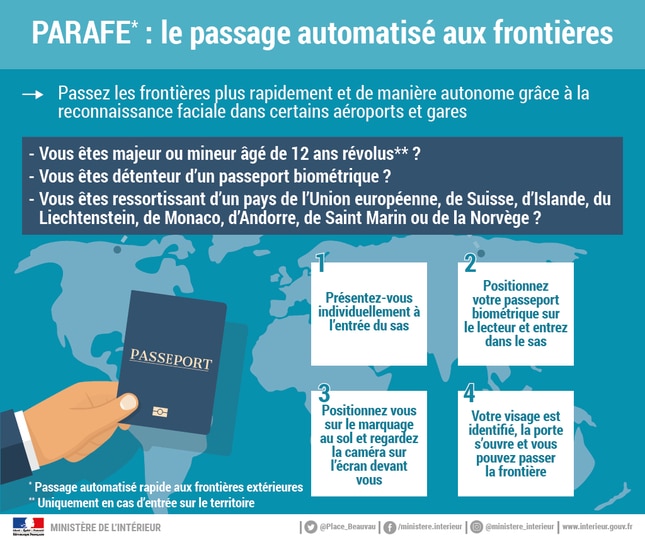
Get ready for a revolution in your travels! Swiss airports and airlines are about to transform the passenger experience through facial recognition. This technology promises to simplify border control, baggage check-in, and even offer personalized assistance. With the increase in air traffic, projected to reach 8 billion passengers per year, infrastructures must adapt to ensure maximum safety and a smoother travel experience. Thus, biometrics emerges as the ideal solution to meet these growing needs.

In Switzerland, airports and airlines are gradually converting to facial recognition to optimize the traveler experience. This technology promises to reduce waiting times, improve security, and make air travel smoother. Let’s discover how this innovation is redefining the Swiss airport landscape.
Table of Contents
ToggleA growing adoption of facial recognition in Swiss airports
The airports in Geneva and Zurich are at the forefront of integrating biometric devices. Facial recognition is gradually developing there for applications such as border control and baggage check-in. For example, in Geneva, travelers can soon expect shorter waiting times thanks to the automation of security checks.
In Zurich, the director of Swissport advocates for a stronger use of facial recognition. He argues that this would allow for more efficient management of the expected increase in passenger numbers, projected to reach 8 billion annually according to IATA.
The benefits for travelers
The rise of facial recognition promises a series of benefits for passengers. Firstly, biometrics significantly speeds up identification processes, leading to shorter waiting times. No more need to pull out documents at every turn; a simple face scan is enough.
Additionally, this technology offers a personalized travel experience. The systems can remember the preferences of frequent travelers, making each flight more comfortable and tailored to individual needs.
Facial recognition: a response to increased security needs
Enhancing security is another major argument in favor of facial recognition. The use of biometrics allows for more accurate identification of passengers, thus reducing risks associated with identity theft and fraud.
Moreover, facial recognition systems can quickly identify any suspicious object or individual, strengthening the overall security of the airport. Security agents are thus better equipped to respond effectively and swiftly to any potential threat.
Concerns about privacy and regulation
Of course, the growing use of facial recognition raises some concerns, particularly regarding privacy and data protection. The CNIL has emphasized the importance of implementing strict measures to ensure that biometric information is used ethically and securely.
Travelers also have the right to refuse this technology and request alternative control methods if necessary. Therefore, airports and airlines must be transparent and offer options for those who prefer not to use facial recognition.
An inevitable transformation for Swiss airports
In summary, the rise of facial recognition in Swiss airports is inevitable and promises numerous advantages. Streamlined checks, reduced waiting times, and enhanced security are all elements that justify this technological evolution. While precautions are necessary to protect data privacy, it seems that this technology is an appropriate response to the growing challenges of modern air travel.
-
Geneva Airport :
- Border control via facial recognition
- Automated baggage check-in
- Personalized assistance for passengers
- Border control via facial recognition
- Automated baggage check-in
- Personalized assistance for passengers
-
Zurich Airport :
- Increased capacity for security checks
- Deployment of biometric devices for a smoother experience
- Digital identity to reduce waiting times
- Increased capacity for security checks
- Deployment of biometric devices for a smoother experience
- Digital identity to reduce waiting times
-
Swiss International Air Lines :
- Check-in and boarding via facial recognition
- Smoothing the journey for passengers
- Improving security with artificial intelligence
- Check-in and boarding via facial recognition
- Smoothing the journey for passengers
- Improving security with artificial intelligence
-
Swissport :
- Increased biometric security checks
- Improved operational efficiency
- Increased biometric security checks
- Improved operational efficiency
- Border control via facial recognition
- Automated baggage check-in
- Personalized assistance for passengers
- Increased capacity for security checks
- Deployment of biometric devices for a smoother experience
- Digital identity to reduce waiting times
- Check-in and boarding via facial recognition
- Smoothing the journey for passengers
- Improving security with artificial intelligence
- Increased biometric security checks
- Improved operational efficiency
Vous n'avez n'avez rien à cacher, vraiment ?
— Amnesty International France (@amnestyfrance) May 24, 2024
La reconnaissance faciale pourrait bientôt être légalisée en France.
Découvrez dans notre film à quoi ressemblerait notre quotidien avec l'intrusion de cette technologie qui DOIT être interdite.👇 https://t.co/mVGThmUKnw





